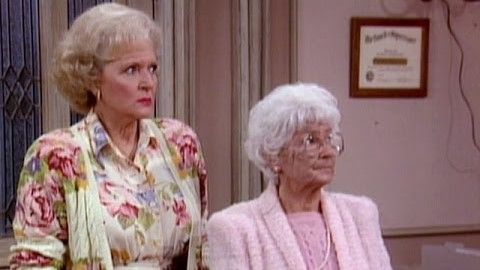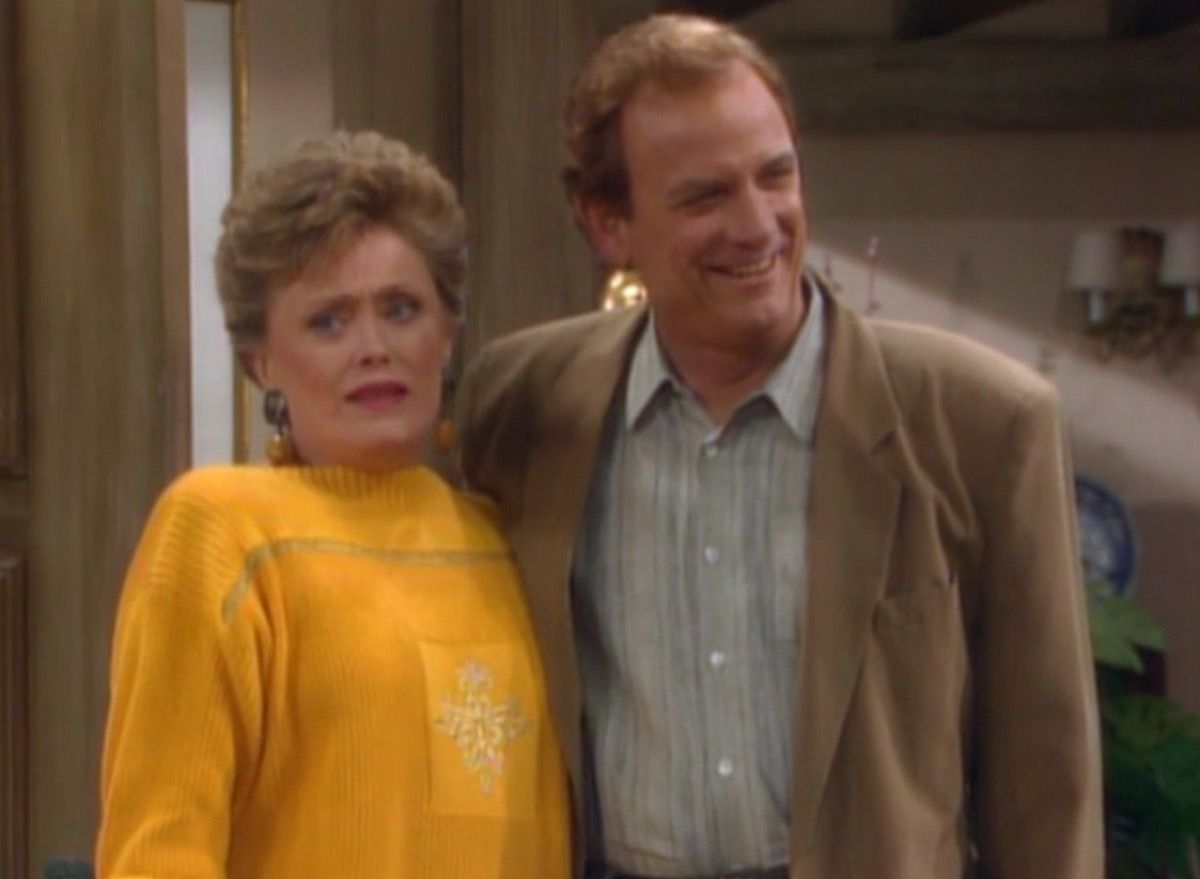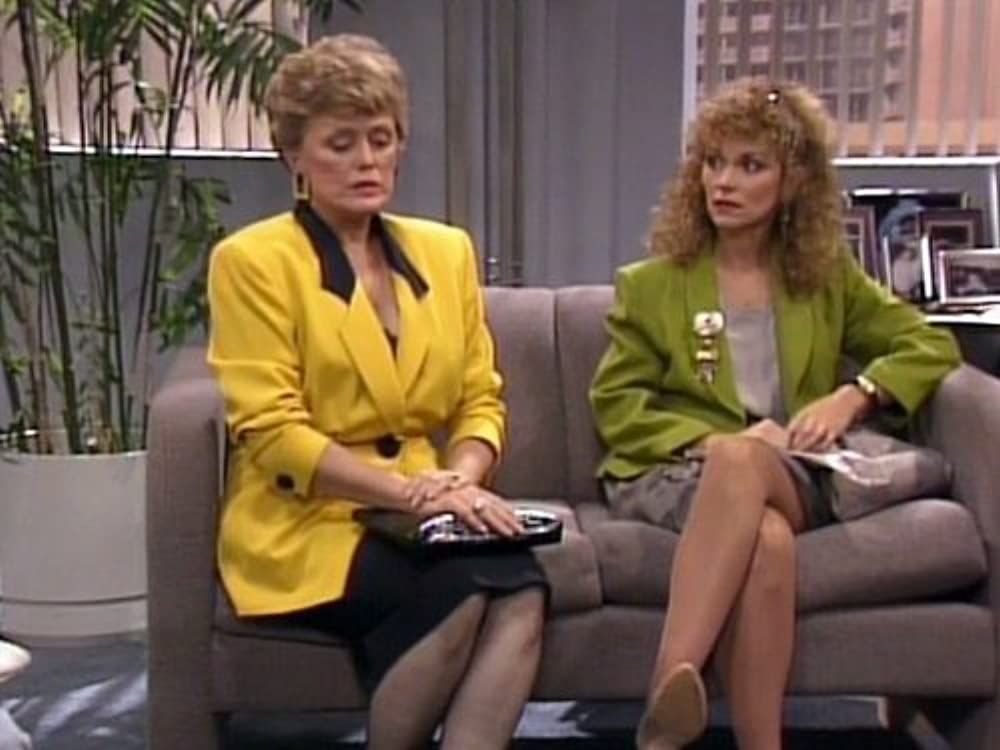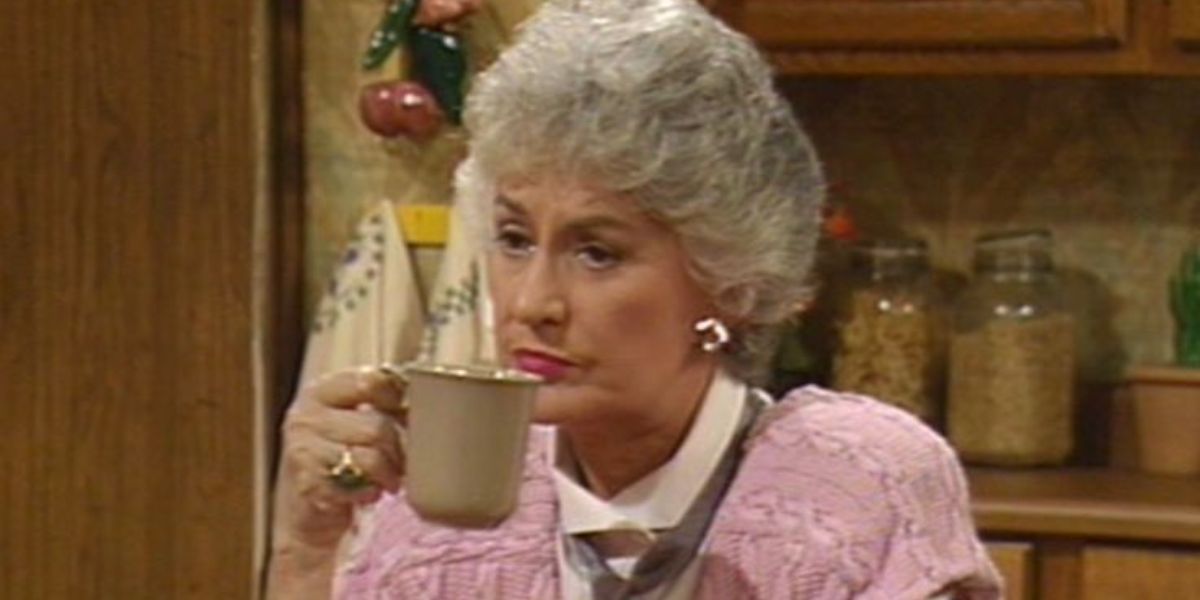The Golden Girls itself was a novel concept at the time: four single women living together in the same home, but this time they were 50 or older and living in 1980s Miami. The show became much more than a novel concept. What happened was the making of a timeless classic: comedians delivering expertly-timed one-liners and witty repartee, eye-opening topics, nostalgic fashion and pop culture moments, and a paved road for other female-led sitcoms. The show successfully utilizes its target audience, takes chances with the material, and teaches valuable life lessons all while delivering laughter.
Mother and daughter duo, Dorothy (Bea Arthur) and Sophia (Estelle Getty), are mending their relationship after smart divorcee Dorothy sends wisecracking Sophia to a retirement home after her stroke. Rose (Betty White) is sweet, but somewhat dim-witted, and grieving over the loss of her husband. Man-hungry Blanche (Rue McClanahan) navigates dating in her “40s.” With dating, the chasm between the way it used to be with the reality of the dating scene for mature adults is highlighted, with Dorothy even joking that she has been known to date a man on life support.
But fans aren’t just here for the hilarity that ensues.
Fans felt comfortable learning from these veteran actors and as a result, the show was able to cultivate its audience and further a progressive agenda within its demographic. The Golden Girls’ target audience was more progressive than the national curve; therefore, as time marched on, the arc of the peoples’ ideas merged with that curve and widened the audience further and longer. The show boldly tackled the issues of the time while pinpointing issues that are still being addressed today.
Among these topics tackled were teenage pregnancy, immigration, homelessness, homosexuality, ageism, treatment of the aging population, the AIDS epidemic, and tolerance for other cultures.
‘Golden Girls’ Tackled Homelessness
Through Rose and Sophia, the show illustrates that ageism and glaring problems with how the aging population is treated, feeds into homelessness.
More than once, Rose seeks employment opportunities and is passed over for being “too old.” She also worries that she will become homeless, thereby pointing out the flaws in the ideology that the homeless are just lazy or addicted to drugs. They were just people who lost their money, or older people with nowhere to go. Sophia often complains of how bad life was at her former retirement home, Shady Pines. Even though the stories are humorous, there is no denying that her existence there sounds awful. From being served cat food or having their bodies pre-sold to medical schools under the guise that they would get to go to college, it all sounded bleak.
In the fourth season episode, “Sophia’s Choice,” Sophia finds out that her good friend, Lillian (Ellen Albertini Dow), was being sent to the worst retirement home in the city, and decides to break her out. She soon realizes that, as an elderly woman herself, she cannot sufficiently care for ailing Lillian. Fortunately, they are able to get Lillian the funds she needs for better care, but also realize that most other people that age would not fare as well. They make a pact to always take care of each other. In another fourth season episode, “Brother, Can You Spare That Jacket?”, the ladies end up spending a night in a homeless shelter and meet people not much different than them. In fact, Sophia even finds one of her friends from Shady Pines there. The ladies also frequently volunteer at soup kitchens throughout the series.
One of the First LGBTQ-Friendly Shows
The show was also one of the first to portray openly, accurately gay characters. Sure, Three’s Company has a “gay friend,” Jack, (John Ritter) but in the pilot episode, The Golden Girls actually employed a gay cook, Coco (Charles Levin). For those of you that didn’t spend summer breaks on the couch watching reruns from the ’70s and ’80s, Jack on Three’s Company wasn’t really gay. He was a chef that wanted to live in a nice apartment in Los Angeles, but that meant having female roommates. For the landlord to agree to that situation, Jack pretended to be gay. Unfortunately, the American sitcom landscape only had room for one gay cook, and Coco was replaced as a main character by Getty’s Sophia, who was originally supposed to be a recurring character. The decision, however, did not go unnoticed by the show’s fans or actors. Being LGBTQ supporters in real life, the cast made sure to include gay guest stars and recurring characters including Dorothy’s good friend, Jean, (Lois Nettleton), who developed a crush on Rose, and Blanche’s brother, Clayton (Monte Markham), who comes out as gay after his divorce.
Accurately illustrated through Blanche are the ignorant attitudes about homosexuals. When told that Jean is a lesbian, Blanche replies, “Lesbian? I’ve never known one personally, but isn’t Danny Thomas one?” (Hint: Danny Thomas was Lebanese.) And of her brother, she makes a comment about how she doesn’t care that her brother is gay, but does he have to date men? “There have to be gays that date women!” But she ultimately comes around and accepts her brother and his partner.
Behind the scenes, Getty’s nephew was dying of AIDS; therefore, they also tackled the AIDS epidemic as well. Season five, episode seventeen titled “72 Hours,” original air date February 17, 1990, Rose finds out that when she had a blood transfusion, the blood used may have been HIV positive. Rose laments that someone like her shouldn’t have to worry about HIV or AIDS. As Blanche so famously retorts, “AIDS isn’t a bad person’s disease, Rose. It is not God punishing people for their sins!” This episode has been ranked among the top 10 episodes of The Golden Girls by Variety Magazine and is a fan favorite. Unfortunately, these topics are still relevant today as gay men are vetted more strictly when giving the life-saving gift of blood, and healthcare in many communities is still a concern. These points still hit home decades later and still garner views.
No Show Gets It Right Every Time
Tolerance is always an important lesson taught on the show.
Although the third season episode “Mixed Blessings” has problematic moments and was banned from Hulu and Hallmark Channel for such, it was one of the first to highlight an interracial marriage. Another third season episode, “Dorothy’s New Friend,” Barbara Thorndyke, (Bonnie Bartlett) a prominent local writer, patronizes Rose and Blanche while putting Dorothy on a pedestal. But when she tells Dorothy they can’t bring a Jewish friend to the restricted Mortimer Club, Dorothy dumps her.
But for all their successes, there were some chances taken that did not fare as well.
For a show with female leads that wanted to portray feminism positively, the show often missed that mark by placing too much emphasis on women’s looks. They plucked the low-hanging fruits of cultural stereotypes and criticizing women’s appearances a bit too often.
In Season 3, Episode 4, titled, “Blanche’s Little Girl,” Blanche’s daughter, Rebecca, (Shawn Schepps) comes home from modeling in Paris in a plus size body and dating a man who verbally abuses her. Although it seems that the show wants to illustrate that a woman’s worth is not based on her looks, Sophia’s comments to Rebecca prove otherwise. She jokes that Rebecca must have modeled car covers and asks her where she buys jeans that size. When Rebecca returns for later episodes, she is played by a thinner actress (Debra Engle).
There are also running gags about Dorothy not being attractive. It got to be so harsh and so often that Arthur herself asked them to stop.
Even though it felt like a nod to tolerance, there were times that the show uses stereotypes to make the point. For example, when Dorothy speaks to Dr. Chang in “Sick and Tired, Part Two,” Sophia goes on ad nauseam about how she loves Chinese people. She praises the Chinese for their food and for being brilliant. She also asks him if she can ask him an important question. Instead of it being about Dorothy’s health, she asks about MSG in Chinese takeout. We know now that stereotypes, even so-called good ones, are still harmful and should be avoided. Yet without examples like this, it is harder for society to take note and grow.
Fortune favors the bold. No show gets it right every single time. The Golden Girls makes mistakes, but has the boldness to make mistakes in the name of progression. Despite its flaws, the show is still as funny and heartwarming as it was when it originally aired. Because of its brand of humor and nostalgia, The Golden Girls has ushered in a new generation of fans while maintaining its original viewership.
Stay connected with us on social media platform for instant update click here to join our Twitter, & Facebook
We are now on Telegram. Click here to join our channel (@TechiUpdate) and stay updated with the latest Technology headlines.
For all the latest TV News Click Here




